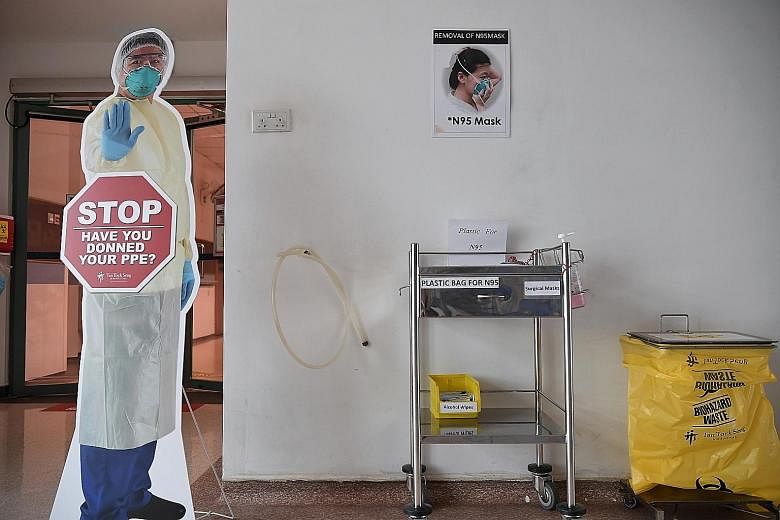Healthcare institutions will be given "the latitude and the time" to decide how they can show appreciation to outsourced workers who have been on the front lines battling the Covid-19 pandemic, said Senior Minister of State for Health Koh Poh Koon yesterday.
He was responding to Dr Tan Wu Meng (Jurong GRC), who had pointed out that such workers may face the same risks as those directly employed by healthcare institutions, but do not get a share of the benefits.
For instance, these workers were not eligible for the special bonus of up to one month's salary, which all front-line public officers received.
"(But) there are cleaners serving in our hospitals, cleaners who are cleaning Covid patients' rooms and toilets, who unfortunately... do not qualify for this bonus because they're outsourced," Dr Tan said.
He asked if the Health Ministry would consider extending the special bonus to outsourced cleaners and other rank-and-file workers who have been on the front lines.
"In the pre-outsourcing era, these workers would have been direct hires... and they would have qualified for similar bonuses and support," he said.
About 10,000 workers, or roughly 13 per cent of the workforce in public healthcare institutions, are hired by third-party contractors.
Nearly 70 per cent of them are in roles that require them to be on the front line or in patient care areas, Dr Koh said. But less than 5 per cent are involved in handling patient samples.
Outsourced staff who work in high-risk areas are trained in infection control measures and provided with personal protective equipment, he added. They are also included in the Covid-19 vaccination exercise for healthcare workers.
On top of that, many healthcare institutions have included these workers in goodwill donations and care packs, Dr Koh added.
When asked if human resource practices that healthcare institutions have for outsourced workers are in line with those for staff that they hire directly, Dr Koh said they typically engage third-party contractors for a fee.
These contractors take on the responsibility of hiring the staff required to meet the needs of specific projects or services, he added. "Hence, the compensation and benefits of staff that they hire are determined and paid by them."
In his reply to Dr Tan, Dr Koh agreed that outsourced workers deployed in higher-risk areas such as wards or intensive care units housing Covid-19 patients "need to be appropriately recognised".
"I'm sure that healthcare institutions will look at ways to honour their hard work and sacrifices, and the risks that they take as well," he said. "So we'll give the healthcare institutions the latitude and the time to plan for appreciation in various ways that they can, to show solidarity to these workers."


